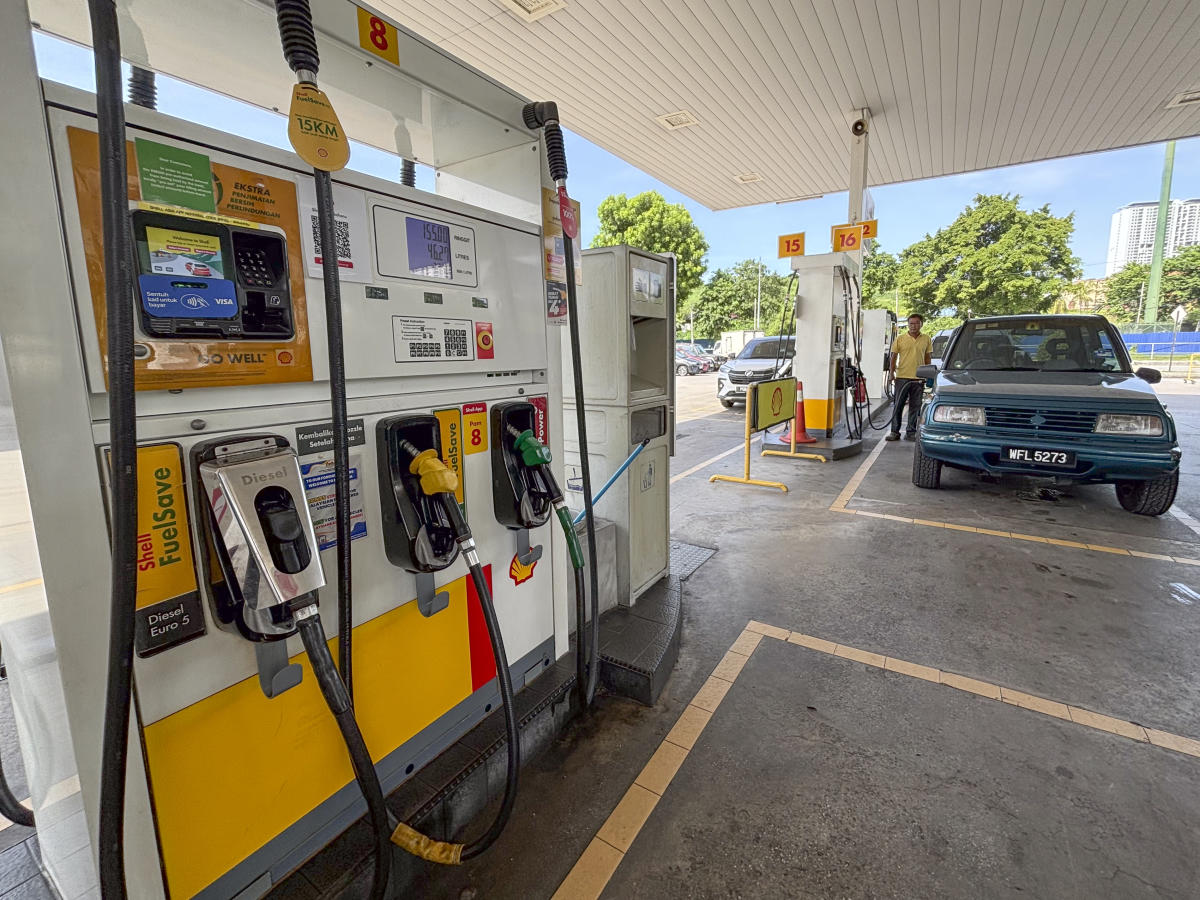KUALA LUMPUR, Malaysia (AP) — Diesel prices in Malaysia rose more than 50% on Monday as part of a review of decades-old fuel subsidies to tighten government spending and save billions of ringgits annually.
The restructuring eliminates blanket energy subsidies and redirects them to those in need. They are part of economic reforms pledged by Prime Minister Anwar Ibrahim, whose government says they are needed to build a more sustainable economy and offset losses from smuggling cheap oil to neighboring countries.
The plan is bold but risky for Anwar, who took power in 2022, because it could anger working-class voters struggling with rising costs of living. Last month he announced the unpopular decision to reduce fuel subsidies to give lower income groups time to prepare for the transition.
“All Prime Ministers had previously agreed on the targeted subsidy, but there was no political will to implement it due to the risks involved. However, to save the country we have no choice,” said Anwar, who is also finance minister. This was quoted by the national news agency Bernama on Monday.
The government eventually plans to follow suit with gasoline subsidies. Basic necessities such as fuel, cooking oil and rice are heavily subsidized in Malaysia, which has put pressure on national finances for years.
Second Finance Minister Amir Hamzah Azizan announced on Sunday that diesel prices will rise to 3.35 ringgit ($0.71) per liter on Monday, a 56% increase from the previous subsidized price of 2.15 ringgit ( $0.46). He said the price will be revised weekly to be in line with market prices.
The price increase will not apply to Malaysian states on the island of Borneo and eligible logistics vehicles, he said. The lower prices previously set for fishermen, and a wide fleet of public land transport vehicles such as school buses, taxis and ambulances, will also remain unchanged.
Monthly cash support will also be provided to eligible persons with diesel vehicles, including farmers and smallholders, the government said. Officials said the increase should not lead to drastic price inflation as subsidies continue to be given to specific groups.
Despite the increase, diesel prices in Malaysia remain the second lowest in Southeast Asia after Brunei, Amir said. Diesel costs 8.79 ringgit ($1.86) per liter in neighboring Singapore and more than 4 ringgit ($0.86) in most other regional countries. In oil-rich Brunei it is heavily subsidized: 1.09 ringgit ($0.23).
Amir said the targeted subsidies will help reduce the budget deficit, with the government expected to save at least four billion ringgit ($850 million) annually. Malaysia’s diesel subsidy bill rose from 1.4 billion ringgit ($300 million) in 2019 to 14.3 billion ringgit ($3 billion) last year.
“Malaysia cannot afford to continue losing billions of ringgit due to widespread diesel smuggling. The money could be better spent on improving the quality of life of the people and developing the country,” Amir said.
